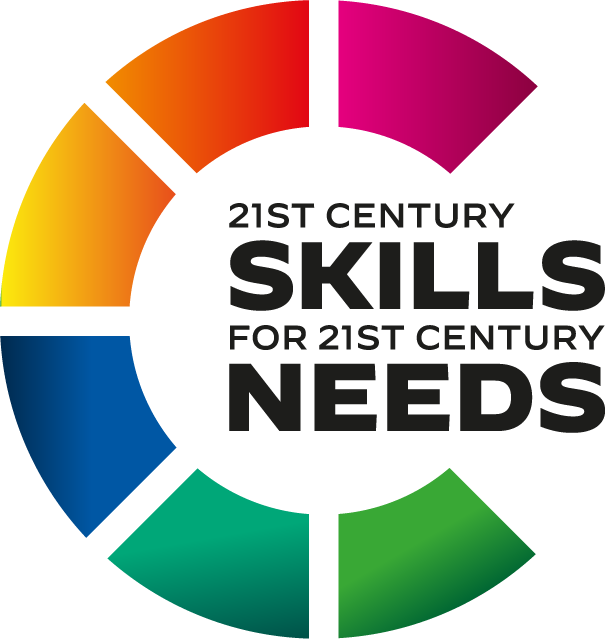Drinking Water - Denmark
Our group chose ‘Citizenship’, and the subject drinking water (freshwater).
I worked with two 5th grade classes, 5.1 and 5.2. In 5.1 we did not work with citizenship, just on drinking water. In 5.2, we worked with both citizenship and drinking water.
In both classes, we started to working with: from where do we get our drinking water. We visited a water plant, where the students acquired knowledge on groundwater wells.
In 5.1, we talked about our drinking water, and how we get it by turning on a tap. I then asked the students where we get the water for our toilets, to take a bath, for cleaning, and so on. This opened up many discussions, but eventually they found out that it is drinking water, we uses for all these things. The students were very surprised, and they started to work with the problem: can we get other kinds of water for toilets, bath, cleaning etc. They eventually ended up working with rainwater, and the possibility of using recycled water. This means using recycled water for cleaning, bath, toilet, etc. The students also had focused on the recent finding of pesticides in our drinking water.
In 5.2 we talked about the word “citizenship.” What does that word mean to you? The students concluded that it means: we have a responsibility, not just to ourselves but to other people, both in our country and in the world. Their focus therefore became how we get drinking water in different places and countries. They researched this and found that we have different sources for drinking water: collecting rainwater, surface water from lakes and rivers, desalination of seawater etc. They also talked about our use of drinking water for toilets, bath, cleaning etc. They also talked about their experiences from travels, and the taste of water from different places. Through their research, they found out that in many countries, the drinking water has to be processed (with the use of chemicals) to be drinkable.
Part II
Our focus this time was on 4 different skills: Research and experiments, Modelling, Perspective and Communication.
We want to teach the students how to do research through experimentation.
We asked the questions:
What do we want to know?
How can we get this information/ these data?
How does one design an experiment for data gathering.
All these incorporate hypothesis, exploration, experimentation, observation and registration.
After gathering the data, it must be sorted so that we eventually can make a model of the subject / experiment for later use in a presentation.
The next step is perspective. We have to look at the real world. Where do we use this knowledge in day-to-day situations? What benefits can we get from our studies, and how do we communicate this to the outside world?
The last step is communication: how do we present our findings in a manner so that other people can understand what we did and why we did it.
Learning these skills is a long process. The student do not learn this in a single year.
We start in the 4th Grade, where we focus on exploration. How do we explore a subject? We do this through simple experiments. With water we start by exploring the three states of matter: Ice, water and vapor. We talk about how we use energy to go from one state of matter to another. We talk and train observation a lot. To observe an experiment is not that easy in 4. Grade. So we train observation by sight, smell, sound and touch. In 5th Grade we continue this training, but makes the experiments a little more complex. With water we will f.ex. work with how thins dissolves in water, and again use observation, but now also collect data for later use. This work continues in the 6th Grade. In the 7th Grade we start making models and presentations. In the 8th Grade we train the communication skills.
We train the communication skills all the way through, because we talk a lot about what we do, what we see, and why we do it.
It sounds like we only talk, but it is important to know that we always do work and experiments when we teach, otherwise the students would get bored.
Another thing we got from this intermission work is: we expect the students to learn how to work with digital tools. Therefor I did some research across the different subjects in the school. That was a bit of a surprise, because we expect students to master a lot in the digital world:
The computer (hardware, peripherals, operating system, file system, security)
Working on the Internet (web surfing/ searching, email, calendar and contact management, safe computing)
Multimedia presentations (editing photos, sound, movie clip creation)
Word processing (with mathematical equations)
Spreadsheets (with charts and data exchange)
Presentations (with presentation skills)
Online communication (blogging, social media, video conferencing)
Cloud computing and collaboration (online office suites, sharing documents, online meetings, presentation broadcasting)
Digital citizenship (e-safety, privacy, ethics and intellectual property)
Introduction to programming – Computational thinking
Introduction to robotics
Modern technology skills (networking, storage & backup, simple IT troubleshooting, security, cloud storage)
That is a lot which our students have to work with in the digital world, and that is what our politicians expect our students to know about when they leave the 9th Grade.
